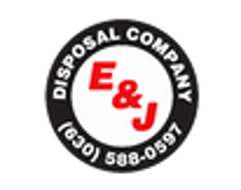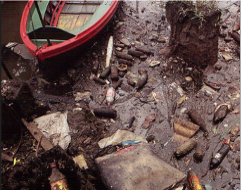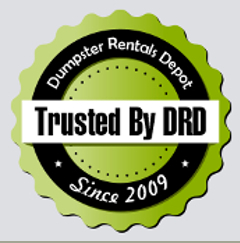365 Ways To Save The Earth - Second Volume

This is the second post of the series of articles devoted the great movement ‘365 Ways to Save the Earth’ that was initiated by folks at Dumpster Rentals Depot (read the first article in our Dumpster Rentals Blog ). The goal of the initiative is to raise awareness of environmental problems and issues. We wanted to share with the community of North America consumers some simple proposals and tips on what each of us and all of us can do to keep our planet cleaner, protecting it from pollutants. By following these simple, easy-to-do recommendation we can contribute to saving not-renewable resources and protecting wildlife.
Below are some tips on how we can keep our planet cleaner:
Support the requirements of the Basel Convention.
The Basel Convention standard, which came into effect in 1992, provides an effective legal framework for controlling and reducing cross-border movements of dangerous waste. It was drawn up by 152 states and, in 2002, led to the issuing of a list of 12 chemical products declared to be persistent organic pollutants (POPs), whose manufacture and use are now prohibited. Among wood treatment, the most toxic, such as arsenic, are now banned, but those that have replaced them are not without dangers of their own.
The United States is the only developed country in the world that fails to control or prohibit toxic waste trade, and has not ratified the Basel Convention. Learn about the hazardous waste trade and what you can do to prevent it.
Use reusable shopping bags.
Each year, the United States uses 30 billion plastic shopping bags, which require 12 million barrels of oil for their manufacture. If dropped in mature, a plastic bag will last for 200 years. If incinerated, they produce pollutants. In the sea, they prove fatal for crustaceans, which swallow them, mistaking them for jellyfish. And they are not biodegradable in the ocean. A single square mile of ocean may be contaminated as many as 46,000 pieces of plastic.
Bring reusable bags when you visit the supermarket, and rediscover your trusty old shopping bags, baskets, and boxes. Keep bags on a hook by the front door so you can grab them on your way out to the store.
Find out what happens to your waste-water.
Water is the source of all life. We depend upon it completely. It is also the chief constituent of all living things: 65% our bodies and 75% of our brains are water. It plays a crucial part in the economy, and allows the irrigation of cultivated land, the manufacture of industrial products, and the production of electricity. It provides superb leisure facilities. It is irreplaceable, and also guarantees hygiene, and the comfort of our day-to-day lives.
Once it is dirty, water vanishes down the drain. Where does it go? Find out where your wastewater goes, how your local treatment plant works, and what happens to the sediment it produces. Let your vision of water see beyond the drain’s vanishing act.
At Dumpster Rentals Depot we would like to thank our supporters:
- Dumpster Rentals in Calgary, AB
- Dumpster Rentals in Edmonton, AB
- Dumpster Rentals in Sacramento, CA
- Dumpster Rentals in Denver, CO
- Dumpster Rentals in Bellevue, WA
- Dumpster Rentals in Ocala, FL
- Dumpster Rentals in Dallas, TX
- Dumpster Rentals in Kirkland, WA
- Dumpster Rentals in Oakville, ON
and many other Dumpster Rentals & Roll Off Container Service companies for their great help in promoting this environment protection movement.
- Published: 2011-10-09T13:17:23-07:00
- Author: Anna Krupp, Dumpsters & Roll Off Container Consultant




